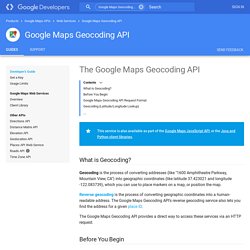

Here's The Right Way For Developers To Think About The Apple Vs. Android Race. How Fast Is Your Site? Measure It With Google’s Page Speed Online. Editors note: The following guest post is written by Josh Fraser.

Josh is the co-founder of a new startup called Torbit which automatically optimizes websites for speed. Yesterday Google announced Page Speed Online, which provides a quick and easy way to accurately measure the speed of your website directly from the web. Previously available only as a browser add-on, Google Labs launch allows you to analyze your site from anywhere and receive instant feedback on making it faster. Chances are, your website could perform better—all of ours could. There are a lot of tools online that only measure server response time, giving an inaccurate picture of your site’s speed.
Page Speed Online is simple to use. Performance matters. Google has been a long-time champion of making the internet faster. Page Speed Online is an important step for the web because it’s lowering the bar for people who want to do performance analysis on their sites. [HowTo] Google Calendar API : PHP (Part 1) at SANIsoft – PHP for E Biz. Google Calendar is another indispensable tool from mighty Google. As with other Google tools, Calendar too have an API which lets users to manage the events remotely from within their web applications. Google Calendar API request/response works in the form of Google Data API feeds.
The popular PHP client library used to work with Calendar service is Zend’s GData which is also distributed as a part of Zend Framework. In this tutorial we will see how to install GData, authenticate against calendar servers and then access Calendar API to retrieve a list of calendars. Install GData First download the latest release GData library from here. Next step is to make sure you can include ZendGdata/library in your php script. Permanently set the include_path directive in your php.ini configuration file from the command lineSet the include_path path variable on a “per directory” level using .htaccessUse the set_include_path() function to dynamically set the include path in your scripts Authentication. [HowTo] Google Calendar API : PHP – Manage events (Part 3) at SANIsoft – PHP for E Biz. Earlier we saw how to install Zend’s GData library and retrieve list of calendars and events.
![[HowTo] Google Calendar API : PHP – Manage events (Part 3) at SANIsoft – PHP for E Biz](http://cdn.pearltrees.com/s/pic/th/google-calendar-sanisoft-7983913)
[HowTo] Google Calendar API : PHP – Retrieve events (Part 2) at SANIsoft – PHP for E Biz. In earlier post we saw how to install GData and retrieve a list of calendars.
![[HowTo] Google Calendar API : PHP – Retrieve events (Part 2) at SANIsoft – PHP for E Biz](http://cdn.pearltrees.com/s/pic/th/calendar-retrieve-sanisoft-7983916)
Continuing the same topic lets now see how to retrieve events from Google calendar using GData library. If you haven’t done so, please read the part 1 of this series before continuing. Firstly, lets instantiate the Zend_Gdata_Calendar class. $path = '/home/abbas/ZendGdata/library'; $oldPath = set_include_path(get_include_path() . PATH_SEPARATOR . For retrieving events, specially constructed URLs are used and Zend_Gdata_Calendar_EventQuery makes it easy to construct URL based on the parameters passed to it.
User: If not specified, the “default” (currently authenticated) user is used i.e. default calendar. The Google Geocoding API - Google Maps API Web Services - Google Code. What is Geocoding?

Geocoding is the process of converting addresses (like "1600 Amphitheatre Parkway, Mountain View, CA") into geographic coordinates (like latitude 37.423021 and longitude -122.083739), which you can use to place markers on a map, or position the map. Reverse geocoding is the process of converting geographic coordinates into a human-readable address. The Google Maps Geocoding API's reverse geocoding service also lets you find the address for a given place ID.
The Google Maps Geocoding API provides a direct way to access these services via an HTTP request. Before You Begin This document is intended for website and mobile developers who want to use geocoding data within maps provided by one of the Google Maps APIs. This service is generally designed for geocoding static (known in advance) addresses for placement of application content on a map; this service is not designed to respond in real time to user input, for example. APIs & Developer Products - January 2011. Geocode with Google Maps API v3. APIs & Developer Products - January 2011.